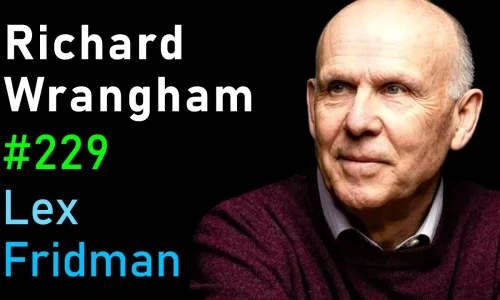See all Lex Fridman transcripts on Youtube

Richard Wrangham: Violence, Sex, and Fire in Human Evolution | Lex Fridman Podcast #229
2 hours 35 minutes 21 seconds
🇬🇧 English

Omnivision Solutions Ltd
- Getting Started
- Create Transcript
- Pricing
- FAQs
- Recent Transcriptions
- Roadmap